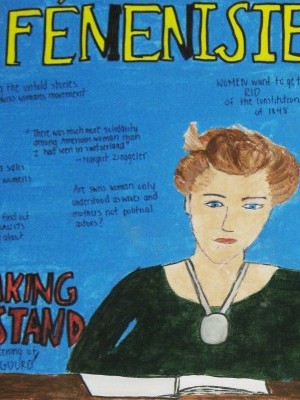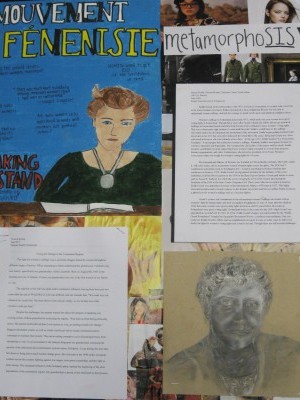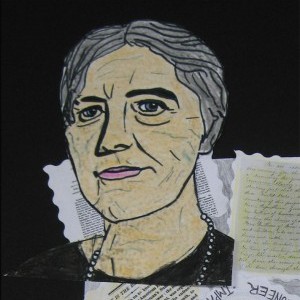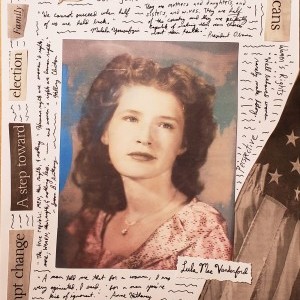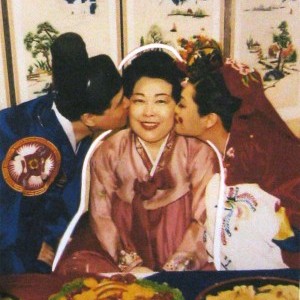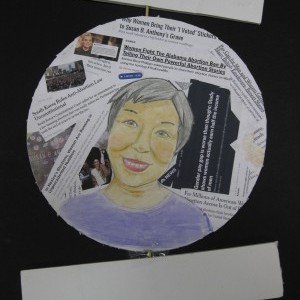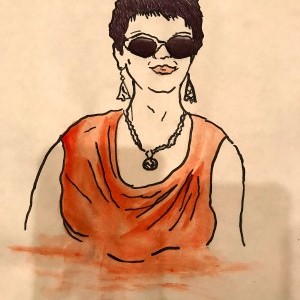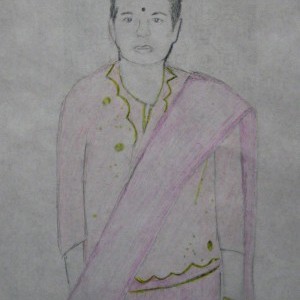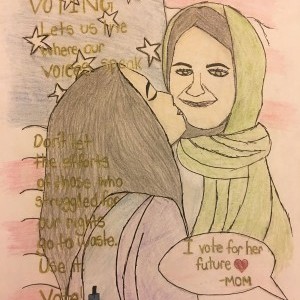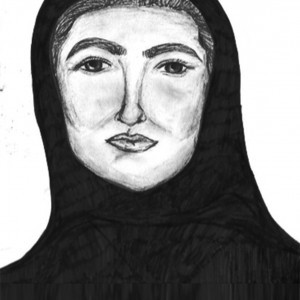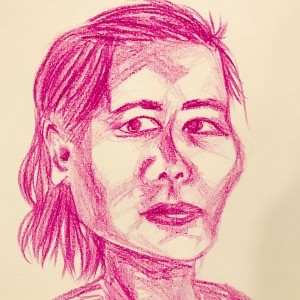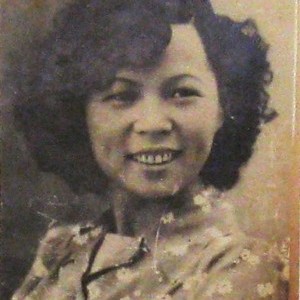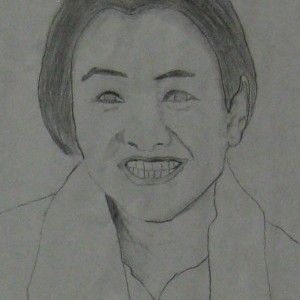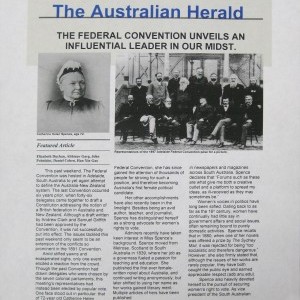Victoria Kuzma, Darius Fratila, Tamanna Uddin & Nylah Odom
Townsend Harris High School | Flushing, NY | 11th Grade
Inspirational Family Member
My Grandmother: Voting for Change in the Communist Regime
The fight for women’s suffrage was a universal struggle shared by women throughout different stages of history. When attempting to better understand this global issue, I turned to my own family, specifically my grandmother, Alina Liszewski. Born on August 8th, 1947 in the bustling port city of Gdansk, Poland, my grandmother was one of the first women in my family to vote.
The majority of her life was spent under communist influence, having been born just two years after the end of World War II. Life was difficult, and she remarks that, “We made toys out of whatever we could find. The store shelves were always empty, so my mother was really inventive with our food.”
Despite the challenges, her parents warned her about the dangers of speaking out, reciting stories of those punished for criticizing the regime. “Fear kept us from being politically active. My parents both believed that it was useless to vote, as nothing would ever change.” Rigged referendum results, as well as a lack of political choice meant communist parties continued to maintain their power. This never-ending corruptive cycle discouraged many from attempting to vote. As an accountant in the Gdansk Shipyards, my grandmother witnessed the growth of the influential anti-communist workers union, Solidarity. It was during this time that her desire to bring about much needed change grew. She took part in the 1980 strike, alongside workers across the country fighting against low wages, strict press censorship, and the right to form unions. The increased influence of the Solidarity party marked the beginning of the slow degradation of the communist regime. My grandmother is proud of her small part in that process.
Historical Figure I Admire
Emilie Gourd
Emilie Gourd, born on December 19th, 1879, in Geneva, Switzerland, is credited with a lead in the Swiss feminist movement. Emilie experienced a more enlightened lifestyle but was able to understand woman suffrage, and had the courage to speak on the issue and ultimately enlighten others.
Women’s suffrage in Switzerland lasted until 1971, which marks the year women were given voting rights in Switzerland. Though this is years after Gourd’s death, her efforts did not go unnoticed. The fight for suffrage in Switzerland lasted extremely long because men continued to deny women’s voting rights. This was a democratic right exclusive to men until this point. Emilie’s contribution to the suffrage movement marks the development and momentum of the movement. Emilie began getting involved in the movement in her 30s but soon after, dedicated her whole life to the cause. Being that Gourd was born and raised in Geneva, she was primarily active there. At the age of 33, Emilie founded “Le Mouvement Féministe” a newspaper that addressed women’s suffrage. Primarily, Emilie’s newspaper focused on women’s education and legal rights. She remained the chief editor of this paper until her death. Emilie Gourd’s contribution towards supporting Swiss women’s rights extended to several other projects, feminist organizations, and clubs. Furthermore, she served as president of ten Swiss Women’s Association where she fought for women’s rights for 14 years.
The International Alliance of Women was founded in 1904 in Berlin, Germany. The IAW, which is still active today, strives to promote women’s human rights across the globe. The IAW had 7 conferences in locations such as Washington, D.C., London and Budapest before it held its conference in Geneva, in 1920. Emilie Gourd, having gained attention for her defiance of the Swiss authorities, held her first reception for the IAW in the Beau Sejour Garden. Gourd paid tribute to icons such as Susan B. Anthony, for which she wrote a biography in 1920, before introducing the President of the IAW at the time, Carrie Chapman Catt. Three years after her reception in Geneva, Emilie Gourd was appointed Secretary of the International Alliance of Women, in 1923. This highly esteemed position marks Gourd’s impact on the feminist movement and forever defines Emilie Gourd as a global icon for women’s suffrage and as a freedom fighter.
Gourd’s actions and commitment to the international women’s suffrage movement echoes women’s fight for human rights and their recognition in legislature. It was 14 years after her death, in 1946, that some women were given voting rights in Geneva and 25 years before all women in Switzerland were given voting rights. Switzerland today is the center for the IAW for which Gourd was appointed secretary in 1923. In 1984, Emilie Gourd’s legacy was represented by the “Emilie Gourd Foundation” founded by Jacqueline Berenstein-Wavre, a credited Swiss politician. One can easily see Emilie Gourd’s efforts and accomplishments have not gone in vain, as in the years to follow her death, the fight for women’s voting rights had come to an end, though there are still societal challenges.
What the Project Means to Me
Both Alina Liszewski and Emilie Gourd stood up for what they believed in. Emilie Gourd played a significant role in the struggle for women’s rights in her country of Switzerland; Alina, courageously and proudly, fought for change against an oppressive regime in Poland.
Explore the Archive
More From This Class
Click on the thumbnails below to view each student's work.
Vivian Chen, Josephine Chen, Ivan Chan, Zafirah Rahman, Neeharika Reddy, Daniel Shi, Daniel Shi, Jacqueline Cho & Osiris Guerrero

Jennifer Moran, Adebola Ademola, Julia Hong, Vicki Kanellopoulos, Inga Kulma, Maimunah Virk, Deborah Molina & Kailey Van
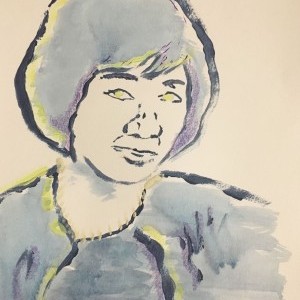
Kristina Chang, Sarah Chowdhury, Bethany Leung, Letian Fang, Cathy Choo, Kelly Chan, Emily Tan, Adamary Felipe & Kenney Son


